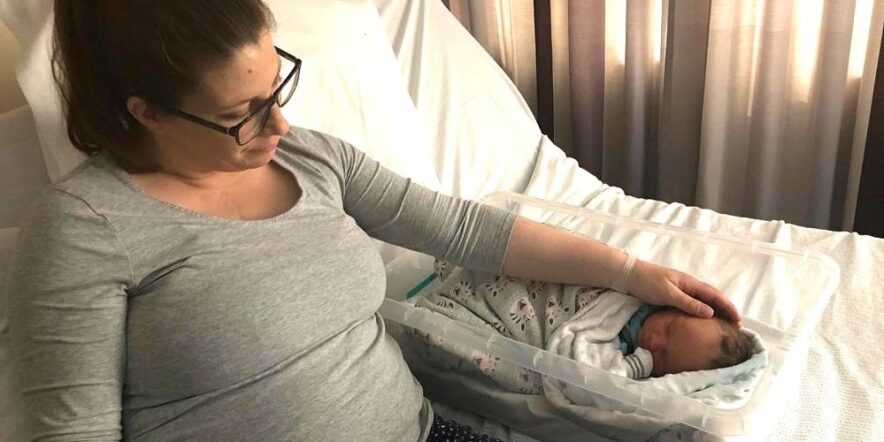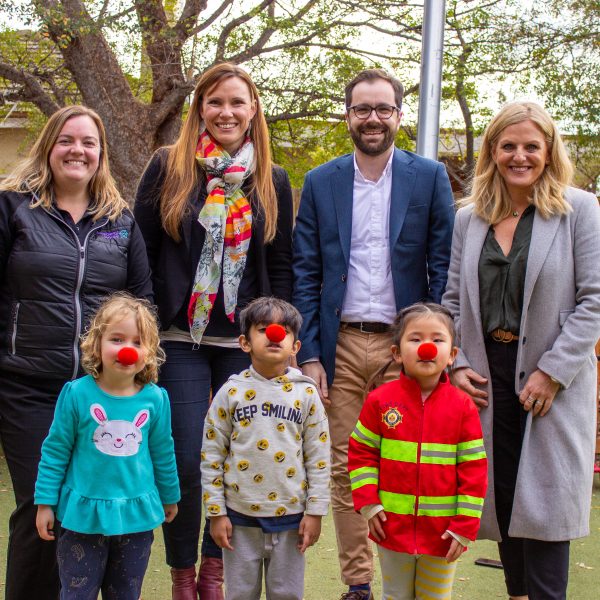Safe sleeping practices for First Nations communities developed, Pedi Pod trialled

Researchers from Charles Sturt University, Flinders University, and SA Health have worked with sector, industry and community groups on a research project that has achieved improved safe sleeping practices for infants in First Nations communities.
The research trialled the Pedi Pod® as a safe alternative to co-sleeping among First Nations families, with 70 families participating in the trial, 91 per cent of whom found that the Pod supported safe sleeping.
Researchers worked in conjunction with the Aboriginal Health Council of SA and the Women and Children’s Health Network (WCHN) to explore ways in which the Pepi Pod®, a plastic box which allows parents to safely sleep infants either in or nearby the parents’ bed, could be used in First Nations communities in South Australia.
The program, which commenced in 2018 and suffered delays due to the COVID-19 pandemic, aimed to increase education on safe sleep practices with infants in First Nations families.
First Nations babies are three to four times more likely to die from Sudden Infant Death Syndrome (SIDS) or sudden unexpected death in infancy (SUDI) than non-First Nations infants.
Professor Julian Grant from Charles Sturt said the research approach was well received and had a positive impact on increasing education on safe sleep practices in First Nations communities, where there is a culturally important practice of staying close to babies.
“The Pod was more like a talking stick in that it enabled families to share safe sleep messages between generations and enabled health professionals to demonstrate respect for cultural practices,” he continued. “The Pod served as a jumping-off point to have a broader conversation around safe sleeping practices in general.”
Professor Grant said the Pod is one example of a tool that could be used in mainstream health services that have a responsibility to provide culturally safe care. Aboriginal Health services are gold standard care but not all First Nations families have access to Aboriginal Health Services and must birth in mainstream health services.
“Mainstream health services need to adapt to centralise First Nations ways of knowing and being,” the Professor emphasised.
“First Nations ways of communicating need to be validated which builds respect and trust, as trust is at the core of any engagement,” he added.
The approach used a two-component intervention study that focussed on safe sleep of infants using a pre- and post-assessment model for Aboriginal families.
“A Knowledge Translation Complexity Network Model was used to analyse the challenges of context and culture,” Professor Grant said.
“Culture needs to be centralised within the intersecting networks of policy, practice and research.
“We must pay parallel attention to First Nations ways of knowing and being in mainstream health care if we are to increase the effectiveness of mainstream health services when it comes to First Nations people.”
Use of the Pepi Pod® system for encouraging safe sleep practices in First Nations communities has since been adopted in various government departments and not-for-profit organisations, nationally.
Popular

Workforce
Quality
Practice
Provider
Research
How one teacher is using Little J & Big Cuz to build empathy, understanding and confidence in First Nations learning
2025-12-08 07:15:19
by Fiona Alston

Quality
Policy
Practice
Provider
Economics
Research
Workforce
NQF Annual Report 2025: Quality gains continue, but sector faces compliance pressures and persistent equity gaps
2025-12-10 07:21:19
by Fiona Alston

Research
Provider
Intentional science play: a three‑stage pathway to foster children’s scientific literacy in the early years
2025-12-10 07:45:26
by Fiona Alston
















